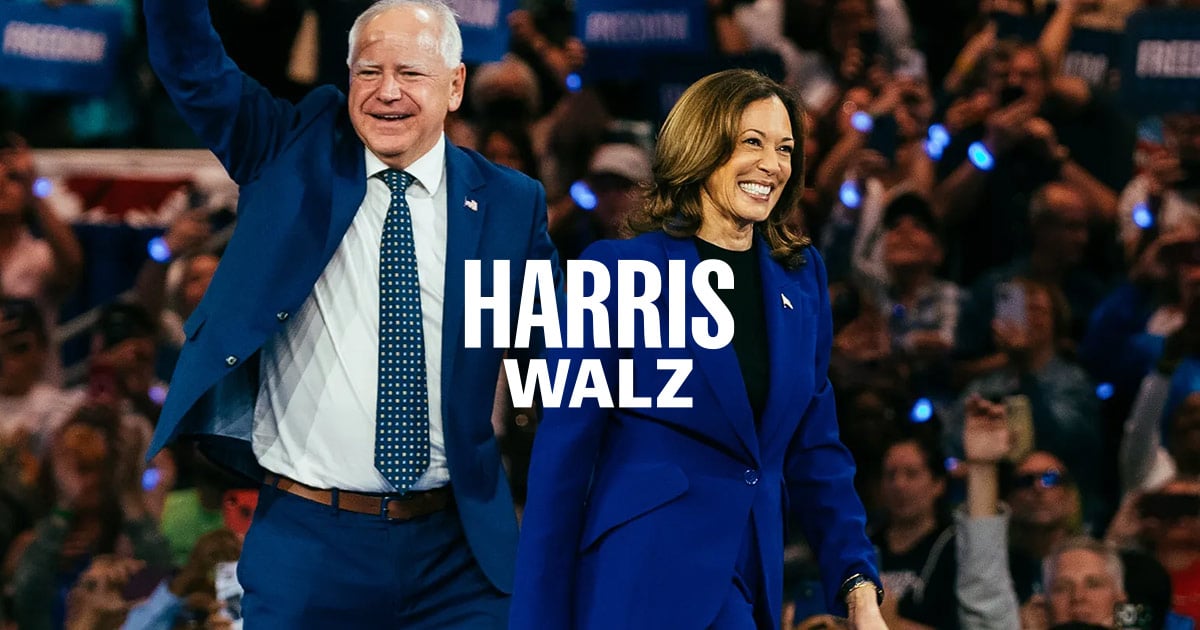The Harris-Walz campaign has said they want to create a federal ban on corporate price gouging (usually mentioned when folks talk about price hikes in grocery stores). I see economists complaining about variations of this policy being bad, e.g. leading to food desserts. But as far as I can tell there hasn’t been anything specific proposed. Could someone explain our best guess at what they are proposing, and if it’s been serious analyzed/tested elsewhere?
They cite existing legislation in the states; maybe explaining what that legislation does/how it works would be helpful?



It is already a crime under state and federal law… Pigs and prosecutors are not doing their jobs
What do the laws on the book look like?
Price fixing occurs when competitors reach an agreement (written, oral, or inferred from conduct) with the purpose and effect of raising, lowering, or stabilizing prices for services or products. Under the free market principles underlying the economy, competitors should freely compete in the marketplace and individually fix their prices based on the market forces (supply and demand). However, when competitors form a price fixing agreement, it can prevent the proper functioning of market based pricing leading to higher costs for consumers and less competition. Most types of price fixing agreements are illegal under antitrust laws, particularly Section 1 of the Sherman Act, but some limited price fixing may be allowed for entities like joint ventures. Price fixing can lead to both felony charges and civil liability for damages resulting from the wrongful manipulation of prices or supply.
The Sherman Act § 1 condemns any contracts, combinations, and conspiracies in restraint of trade, which includes vertical and horizontal price-fixing schemes. Horizontal price fixing agreements are the stereotypical example of price fixing which involves competitors that agree to raise, lower or stabilize prices, creating a cartel agreement. For example, when two competing fast-food chains that sell hamburgers agree on the retail price of cheeseburgers, that horizontal agreement is illegal under the Sherman Act because it would undermine market pricing. Price fixing does not require an explicitly set price but can be achieved by agreeing on an algorithm or other method for controlling prices. Vertical price fixing involves members of the supply chain that agree to raise, lower or stabilize prices. For example, when manufacturers of a product force the retailers to sell the product at a predetermined retail price or require their retailers to follow “suggested” retail price policies that do not allow discounts to customers. These types of agreements are also illegal under antitrust laws.
The boundaries of what constitutes illegal price fixing can be unclear, and sometimes proving price fixing can be challenging. Illegal price fixing can occur where the parties have not directly communicated with one another. The Sherman Act § 1 covers “contracts,” “combinations,” or “conspiracies” formed in order to restrain trade which can occur without formal communication. For example in Interstate Circuit v. United States, the Supreme Court found a conspiracy to exist among the distributors of films in Texas, even though no evidence existed of communication among themselves, because each changed their prices after receiving the same demands from two primary movie theater companies in the state. Often, problems arise with determining whether businesses in an industry are mirroring prices overtime as a function of the market versus a coordinated effort by businesses to control prices.
The Federal Trade Commision (FTC) also has authority under 15 U.S.C. § 45 to prevent “unfair competition” including actions beyond price fixing potentially without the proof requirements required in § 1 of The Sherman Act. However, the Second Circuit has indicated that the Commission still must show “(1) evidence of anticompetitive intent or purpose on the part of the producer charged, or (2) the absence of an independent legitimate business reason for its conduct” in order to act on price fixing under § 45 (See E.I. Du pont. v. FTC, 729 F.2d 128 (2d Cir. 1984)).
Almost all agreements among competitors to control prices or volume of product is per se illegal, but price fixing is allowed in some limited circumstances. There are limited times where negotiations on prices in business like joint ventures actually allows for better pricing in the market or more competition. Also, entities covered by trade agreements may be exempted from traditional price fixing rules such as government operated business like OPEC.
For more information on price fixing and similar antitrust regulations, see this FTC overview and this DOJ guide.
https://www.law.cornell.edu/wex/price_fixing